On July 26, Tsinghua Global Summer School 2020 entered into its seventh day with the academic theme, Lifelong Learning and Development, supported by Tsinghua University Latin America Center and Tsinghua University Southeast Asia Center.
For day 7 of GSS, we invited Professor Edward Crawley, Honorary Professor of Tsinghua University and the Interim Provost of the Tsinghua Southeast Asia Center, to speak at a keynote lecture hosted by Ms. Meng Bo, the Associate Dean of the Office of International Affairs of Tsinghua University, entitled Engineering Education and Lifelong Learning as Engines of Economic Development.
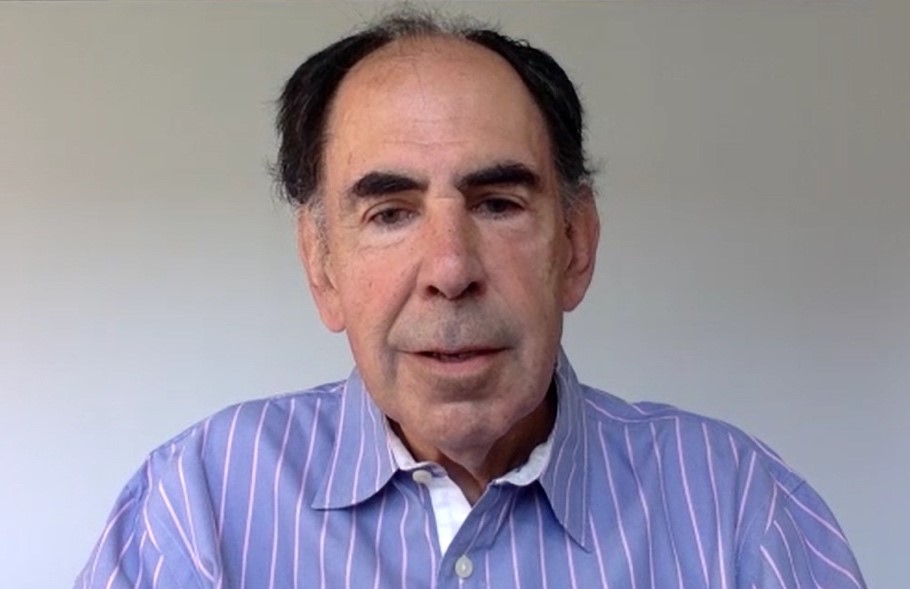
Professor Edward Crawley, Massachusetts Institute of Technology
In his speech, Professor Crawley pointed out that we are in a rapidly changing era, and students are the driving force for development. Knowledge exchange is the most valuable contribution of universities. Through education, scientific research, and promotion of innovation, universities can enhance knowledge exchange, accelerate innovation in industries and enterprises, and ultimately become a booster for economic development. Professor Crawley believes that students should become life-long learners and harness the power of knowledge exchange in education, research, and innovation so as be a driver in helping to achieve the United Nations Sustainable Development Goals.
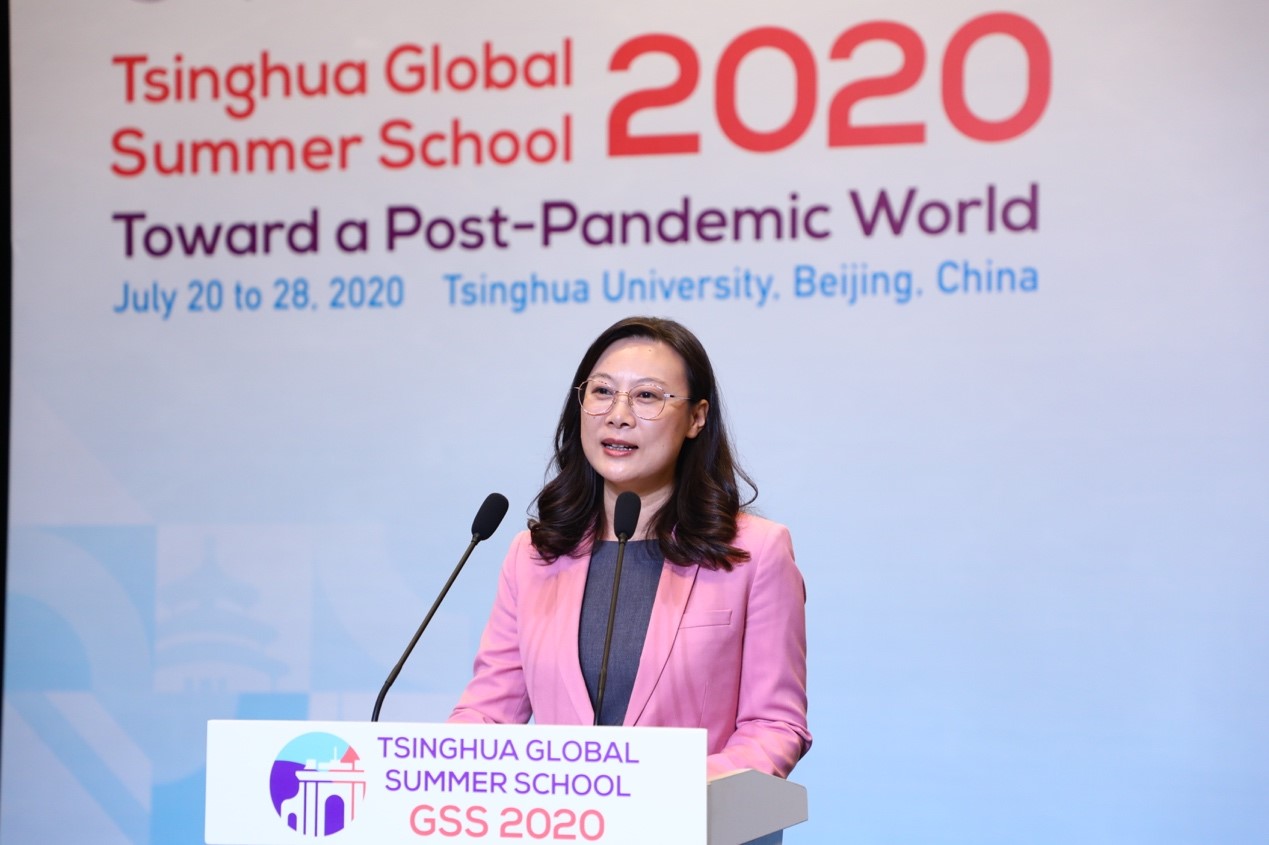
Ms. Meng Bo, Associate Dean of the Office of International Affairs, Tsinghua University
During the Q&A session, students raised a series of questions including the future development of the Southeast Asia Center and the integration of modern educational concepts with local culture. The Keynote Speech and Q&A session was moderated by Ms. Meng Bo, the Associate Dean of the Office of International Affairs.
At 9am Beijing time, a special dialogue was held, entitled: Dialogue with Former Ambassadors of Latin American to China. Distinguished guests of this session included: Mr. Fernando Reyes Matta, former Chilean ambassador to China, Mr. Marcos Caramuru de Paiva, former Brazilian ambassador to China, and Mr. Diego Ramiro Guelar, former Argentine Ambassador to China. They shared their personal insights on various topics, including How to understand China, The development and prospects of China-Latin America relations, and How universities could help promote understanding between China and Latin America. The dialogue was moderated by Professor Chen Taotao, the Director of the Tsinghua University Latin America Center from the School of Economics and Management.
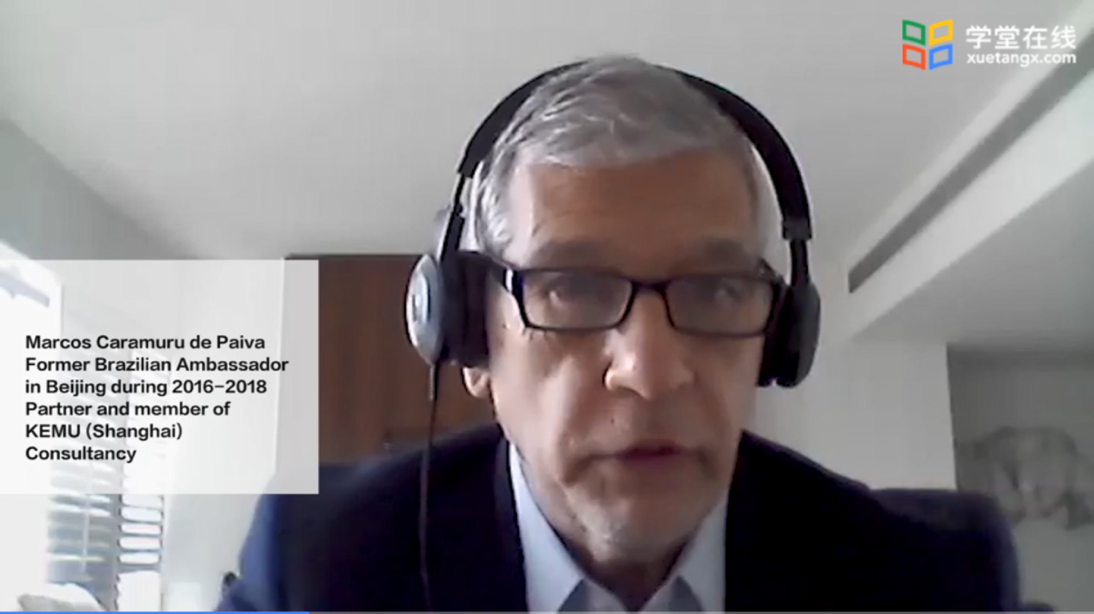
Mr. Marcos Caramuru de Paiva, former Brazilian ambassador to China
Former Brazilian ambassador Mr. Marcos Caramuru stressed the good relationship that China and Brazil have and the positive outlook on future relations. He emphasised the strong bilateral trade relationship maintained during the COVID-19 pandemic and stated that after the pandemic, Brazil will continue to promote investment with China and welcome more Chinese companies to invest in Brazil.
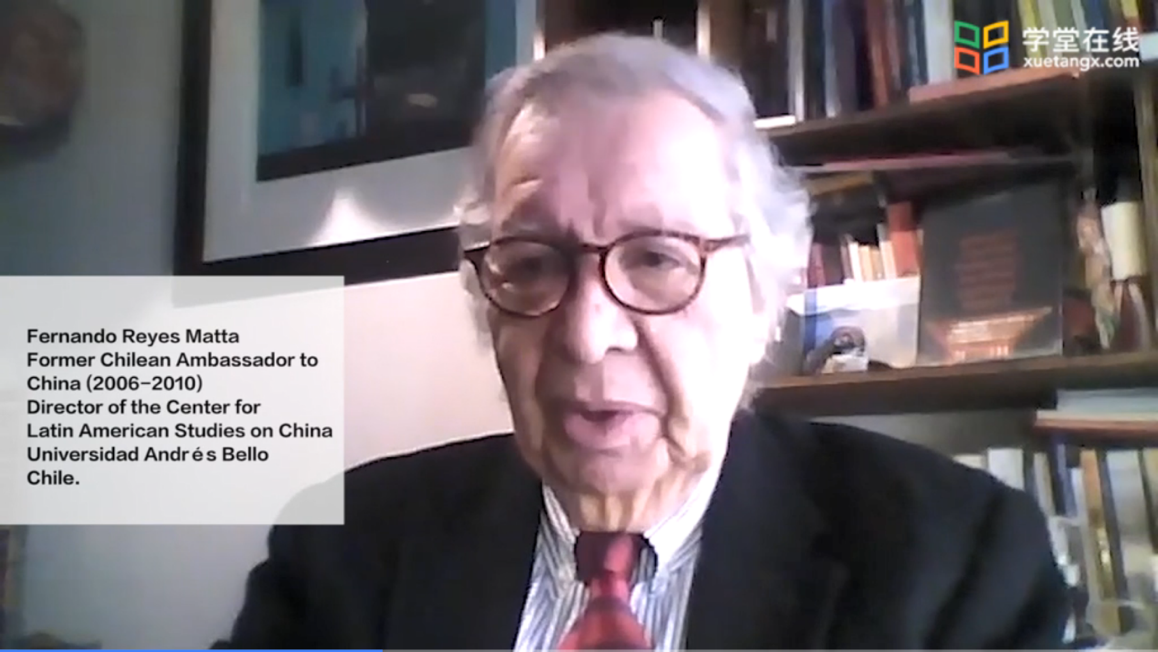
Mr. Fernando Reyes Matta, former Chilean ambassador to China
Former Chilean ambassador, Mr. Fernando explained the mechanisms behind the good relationship between China and Chile, emphasizing that both countries advocate multilateralism and free trade and have similar views in a variety of aspects.
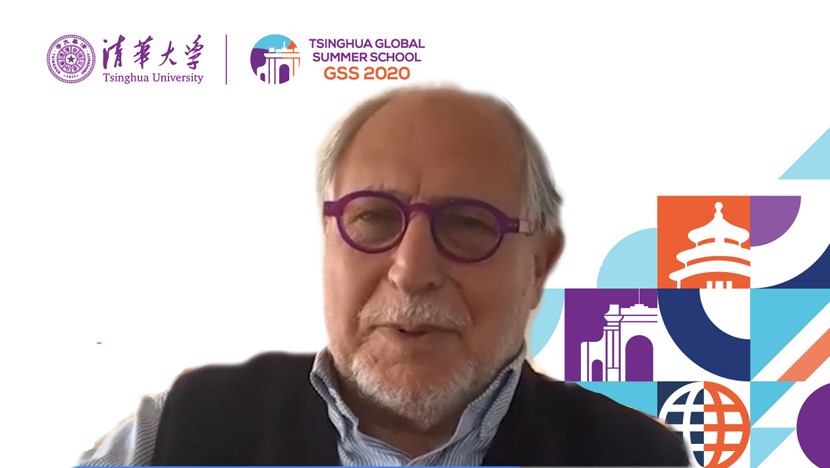
Mr. Diego Ramiro Guelar, the former Argentine Ambassador to China
Former Argentine ambassador, Mr. Diego, in his speech, talked about how China is now one of Argentina’s biggest trade partners, pointing out that the pandemic has made the relationship between China and Latin American countries increasingly important.
Professor Chen Taotao introduced the establishment of the Tsinghua University Latin America Center, explaining that China’s development needs to embrace the world, and the world needs a strong and peaceful China. Hence, improving mutual understanding is the foundation and driving force behind inclusive global development.
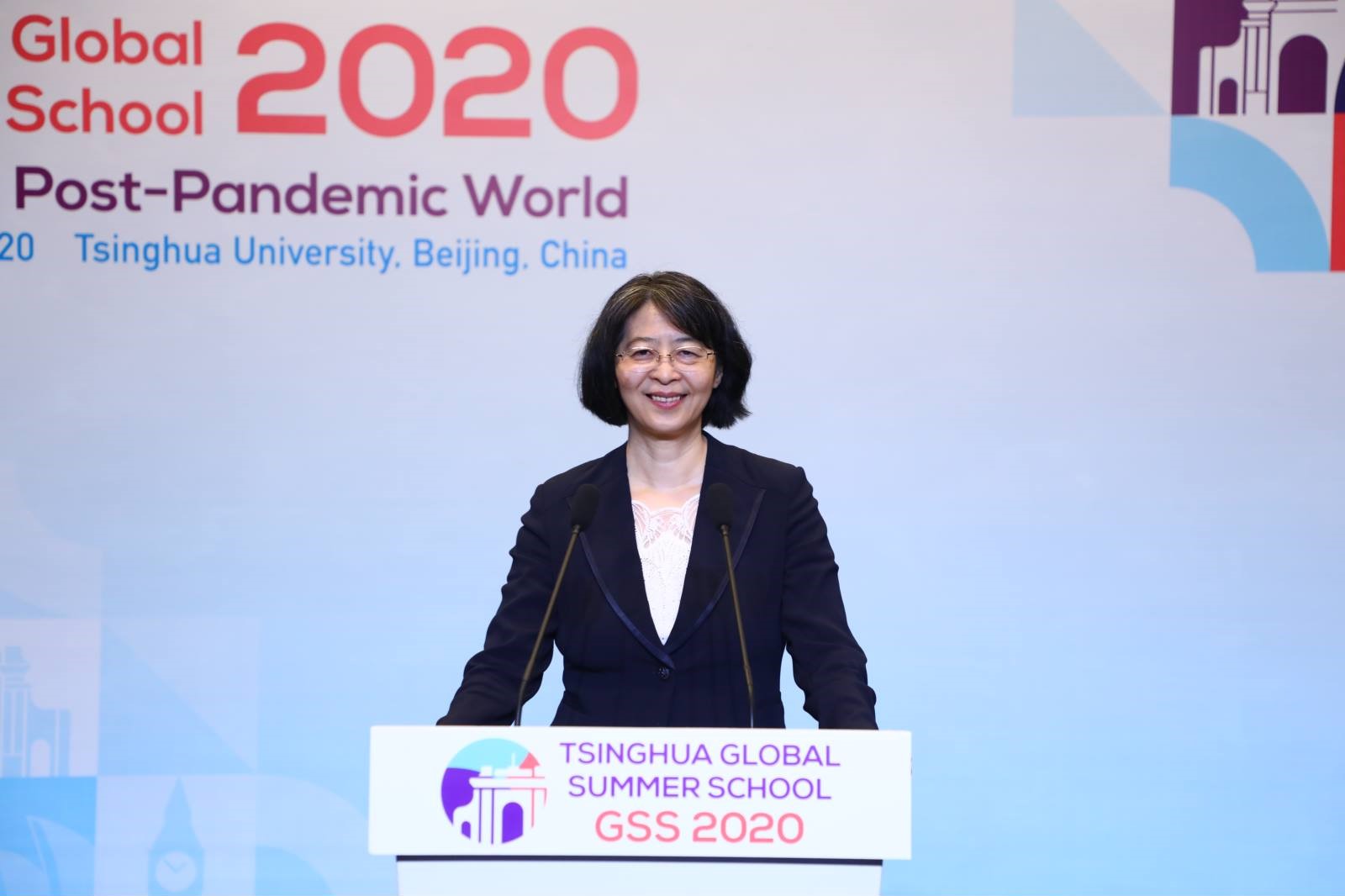
Professor Chen Taotao
As for the impact of the pandemic on the world, all three ambassadors agreed that economic factors are a critical aspect concerning society’s cooperation and compliance towards pandemic prevention measures. Hence, no matter what response measures a country choses to impose, economic recovery should be kept at the core alongside prevention and control measures. The speakers also encouraged more international cooperation in the public health sector, in terms of prevention and control measures, vaccines, and therapeutic drug development. Before the dialogue concluded, the speakers also spoke of the creativity of Chinese universities, for instance, how the innovative spirit of Tsinghua University, its strong scientific research capability and the Tsinghua Science Park's "industry-university-research" model is an approach that is worth reflecting on by Latin American universities. In the future, universities should foster greater interdisciplinary cooperation in areas such as vaccine research, climate change, law, technology, and economics, as well as undertake cutting-edge research and encourage dialogue between different countries.
During the discussion, students shared their personal experiences with our expert panel. Many students mentioned that through the session, they were able to deepen their knowledge of Latin American countries and greater appreciate the importance of promoting deeper cooperation between China and the world.
At 4pm Beijing time, the seminar hosted by the Tsinghua Southeast Asia Center entitled the International Development and Talent Development of Enterprises was held. Guests for this seminar included Mr. Chen Jie, Assistant Country Manager from the Bank of China (Hong Kong) Ltd. Jakarta Branch, Indonesia; Mr. Liew Chee Wei, President of the Association of Graduates from Tsinghua University, Malaysia, Special Officer for CEO, CEO Office of Proton Malaysia; Ms. Liu Yanli, Vice President of the State Grid International Development Co. Ltd, and Ms. Jia Xiaomeng, Vice Director from the Department of International Business Training at Sinopec Management Institute.
The four guests shared their exploration and practice of their respective companies in international development and talent training. They discussed in-depth the opportunities and challenges that enterprises face to develop international talents and the promotion of business development. Based on their own experiences, our guests shared their insights and knowledge in corporate global talent management under different cultural backgrounds such as China, Indonesia, and Malaysia. This has helped students to further understand the development of enterprises in the context of globalization, especially in the post-epidemic era.
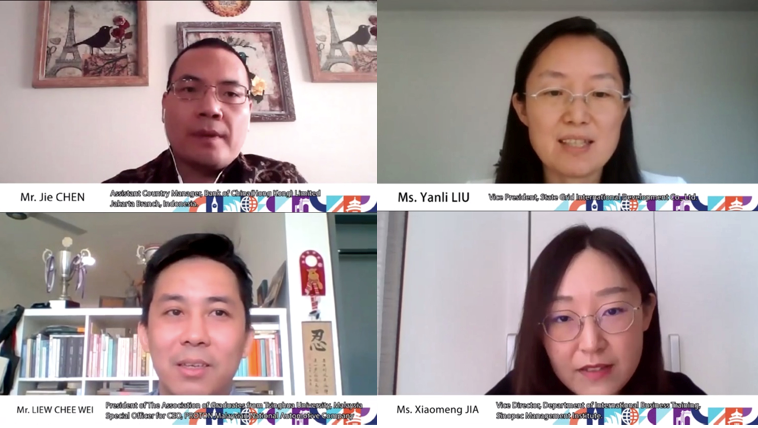
Distinguished guests sharing their perspectives
This webinar was hosted by Professor Lang Xiaohong, the Assistant Dean from the Tsinghua School of Continuing Education.
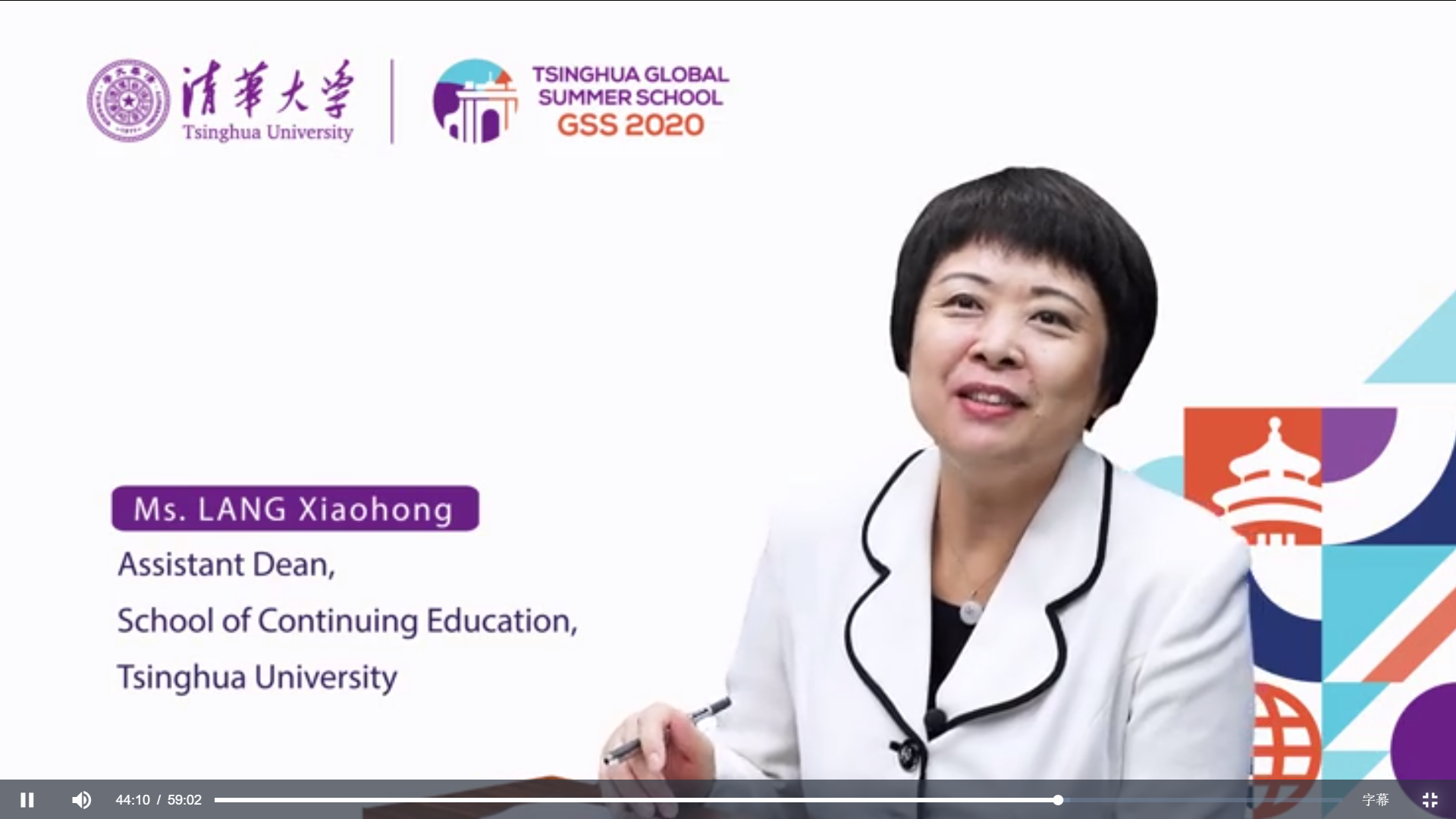
At the end of the course, a webinar with the theme Learning and Growth by Going Global & the Role of Leading Universities in Post Covid-19 was hosted by Professor Chen Taotao, Professor from the School of Economics and Management of Tsinghua University, and Director of the Latin American Center. Meanwhile, corporate guests Ms. Gao Lan, Senior Vice President of Lenovo Group, and Mr. Jiao Jian, Vice President of the China Minmetals Corporation, were also invited to the session. They discussed topics such as the challenges faced by Chinese companies going global, the growth and understanding of the globalization process, and the importance of cooperation and communication.

As the sessions for day 7 of Tsinghua GSS 2020 came to an end, international student participant Otari Kakhidze from Georgia commented: "A conversation with a wise person is worth of ten years of study. This has been our feeling after every lecture ever since the welcoming speech. You have already succeeded, in such extraordinary times, to begin this conversation with over a thousand talented young people across the globe! We are extremely honoured and grateful to be a part of the Tsinghua GSS community and firmly believe that it will serve as a perfect starting point to learn about absolutely crucial Chinese perspective on global issues. "
The Tsinghua University online Global Summer School (GSS) 2020, entitled “Toward a Post-Pandemic World”, is a nine-day journey carried out collaboratively by 17 global academic institutions, including ten different colleges and departments of Tsinghua, five overseas institutions, and two international associations for higher education initiated by Tsinghua. GSS will delve into our post-pandemic world in various disciplines - including economics, education, society, artificial intelligence, climate change, and leadership - and engage with students through lectures, group discussions, and cultural experiential events, integrating the academics with innovation and interaction. GSS strives to break through boundaries, technical limitations and identity constraints to address social issues. The summer school aspires to integrate resources and collaboration inside and outside classes, off and on campus, in China and in other countries, and online and offline.
Reporter: Matthew Aw
Photos: Qiu Yinghan, Li Ruyi, He Kang
Editors: Guo Lili, John Olbrich